Waterfall Countertops: A Blend of Elegance and Expense
08:37Waterfall countertops have surged in popularity in modern kitchen and bathroom design, becoming a coveted feature for homeowners and designers alike. Characterized by their continuous, seamless flow from the horizontal surface down the sides, these countertops create a stunning visual effect that exudes luxury and sophistication.
But what exactly makes them so appealing, and why are they so expensive? In this article, we will tackle the waterfall countertop trend and shed some light on its popularity and, more importantly, the price tag.
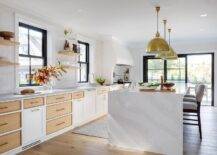
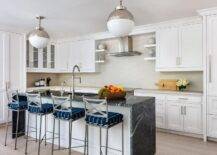
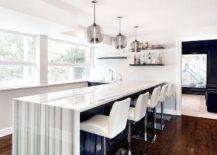
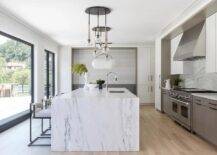
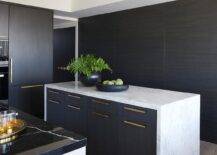
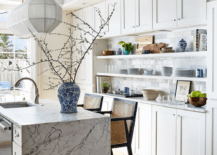
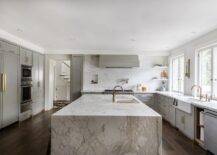
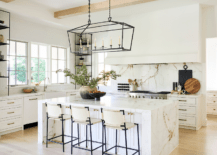
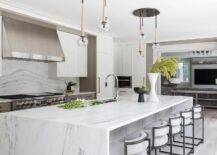
What is a Waterfall Countertop?
A waterfall countertop is a sleek and modern design feature in which the countertop material extends vertically down the sides of cabinetry or an island, creating a seamless flow from the horizontal surface to the floor. This design mimics the natural movement of water cascading over a ledge, hence the name “waterfall.”
Typically, materials like quartz, marble, or granite are used to achieve this effect, enhancing the aesthetic appeal and offering a luxurious, continuous visual line that showcases the beauty of the stone.
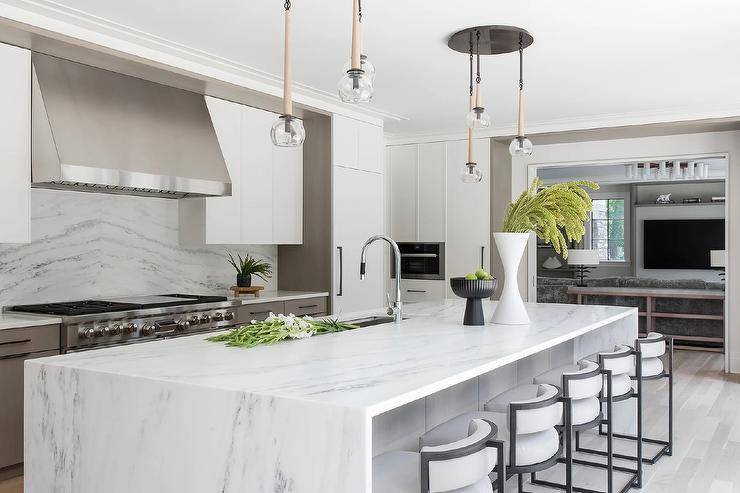
Besides adding a contemporary touch, waterfall countertops also provide functional benefits, such as protecting the sides of cabinets from wear and tear and making the kitchen easier to clean. This design choice can make a strong architectural statement, blending functionality with high-end style to elevate the overall look of a space.
Material Choices
Among the most popular choices are natural stones such as granite and marble, which offer durability and a timeless look. Quartz, a man-made material, is also favored for its resilience and wide range of color options, allowing homeowners to achieve a customized appearance.
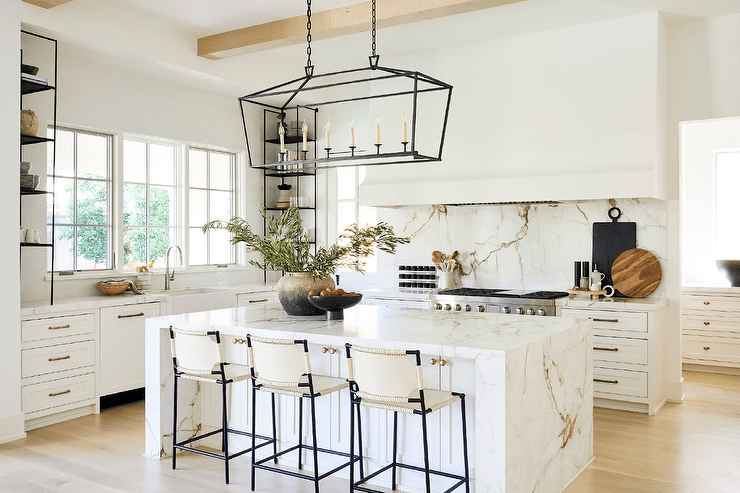
Materials like concrete and wood have gained popularity for their unique textures and ability to add warmth and character to any kitchen or bathroom. Each material brings its own set of benefits, making waterfall countertops a versatile and stylish choice for contemporary interior design.
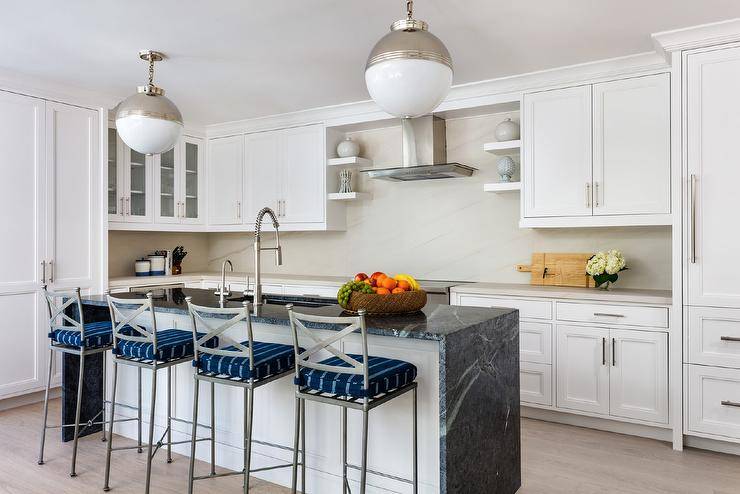
Factors Contributing to High Cost
One of the primary reasons waterfall countertops are so expensive is the complexity and precision required in their fabrication and installation. Creating a waterfall edge involves meticulous craftsmanship to ensure that the grain of the material aligns perfectly at the corners. This is particularly challenging with natural stones like marble or granite, where the natural veining needs to match seamlessly.
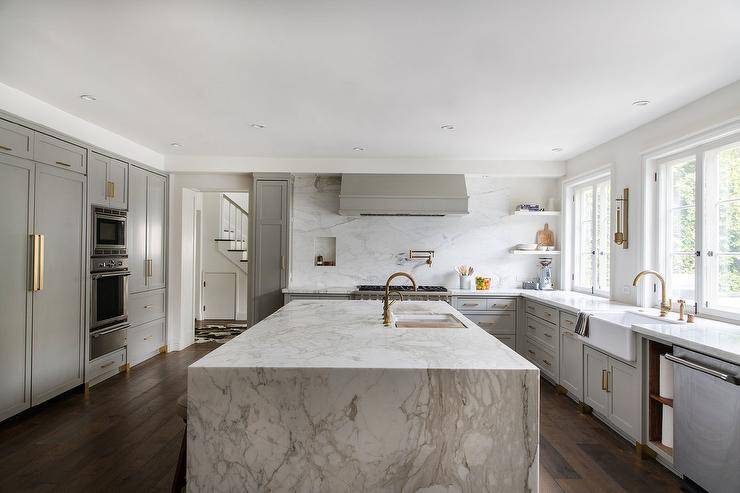
Achieving this level of precision requires skilled artisans and advanced cutting technology, both of which contribute to the higher cost. The materials used for waterfall countertops are often premium options such as high-quality quartz, marble, or exotic stones, further driving up the price.
Beyond the material and craftsmanship, the design and installation process of waterfall countertops is labor-intensive. Each piece must be cut with exacting precision, and the edges need to be mitered at a perfect 45-degree angle to create a seamless joint.
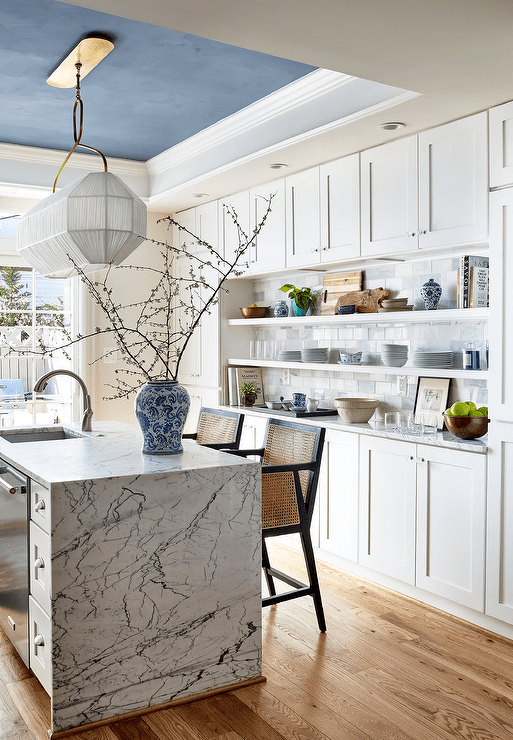
This process requires not only advanced tools but also a high level of expertise to ensure that the joints are virtually invisible and the structural integrity is maintained. The installation process also demands careful handling and placement to avoid damage to the heavy and often fragile stone slabs. Furthermore, the extended vertical surfaces require more material than traditional countertops, adding to the overall cost.
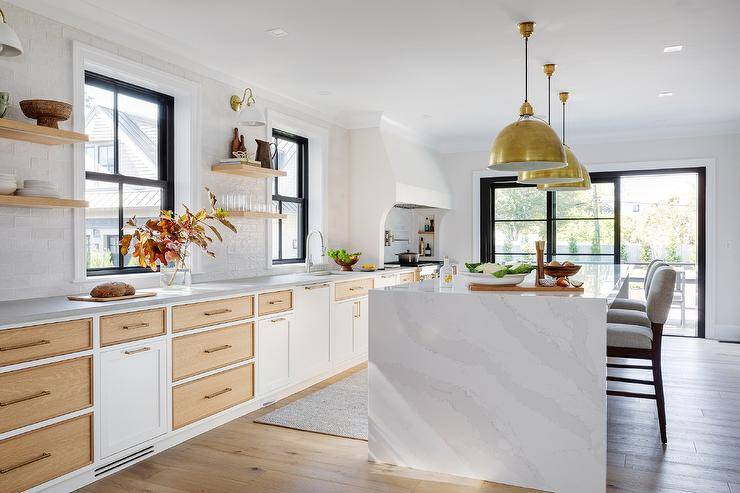
Benefits
From a design perspective, waterfall countertops offer several benefits that justify their expense. They provide a clean, uninterrupted line that enhances a space’s modern aesthetic. This design can make a room appear larger and more open as the continuous flow of material draws the eye along the length of the countertop.
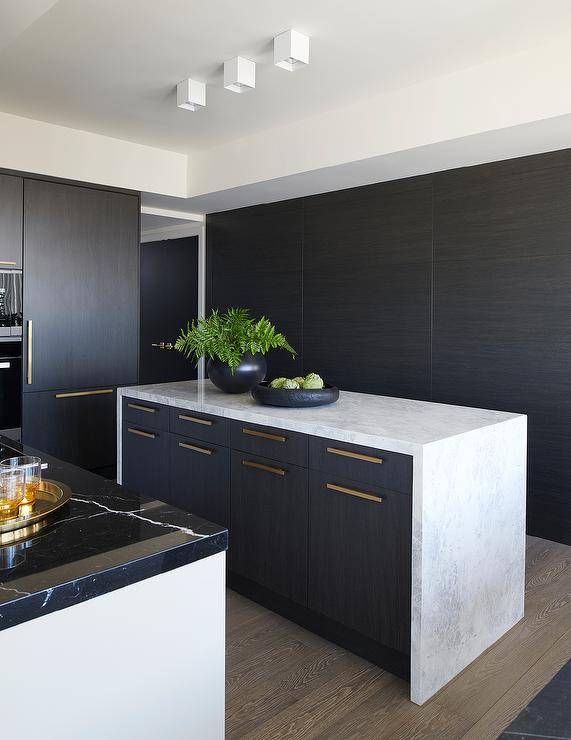
Waterfall countertops can serve as a protective element for cabinetry, shielding the sides from spills, scratches, and other wear and tear. Their durability and timeless appeal ensure that they remain a valuable investment, adding both style and functionality to any home.
Waterfall countertops are a luxurious and stylish addition to modern interiors, characterized by their seamless flow of material from the countertop surface to the floor. The high cost associated with these countertops is due to the premium materials used, the meticulous craftsmanship required, and the labor-intensive installation process. Despite their expense, the aesthetic and practical benefits they offer make them a desirable choice for homeowners looking to create a sophisticated and durable kitchen or bathroom space.
Pros and Cons
One of the main advantages of waterfall countertops is their visual appeal; the continuous flow of the material from the horizontal surface down the sides creates a seamless, elegant look that can enhance the overall design of a space. They can provide extra durability and protection for the edges of cabinets and islands, reducing wear and tear.
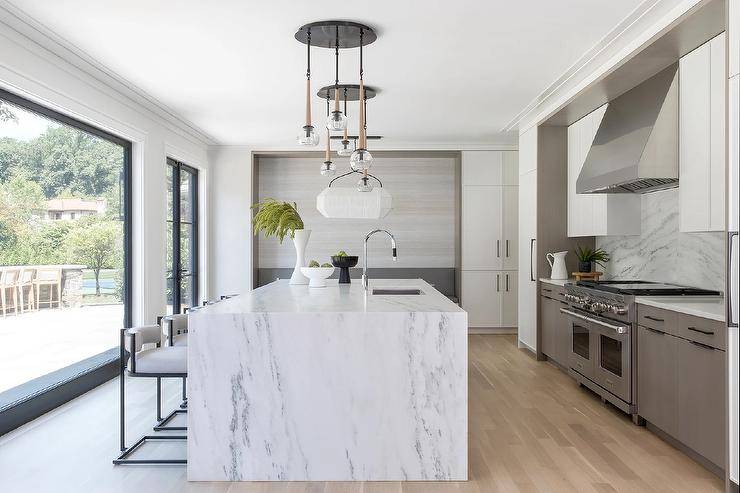
There are also some downsides to consider. Stating the obvious, as we have already discussed — waterfall countertops can be significantly more expensive than traditional countertops due to the extra material and labor required for installation. They may also limit the functionality of lower storage spaces, as the continuous surface can interfere with the placement of drawers and cabinets. This style may not suit every home aesthetic, particularly more traditional or rustic designs.
This premium choice not only elevates the aesthetic appeal of any kitchen but also provides functional benefits such as durability and ease of maintenance. While the cost of installing waterfall countertops can be higher than traditional options, the long-term benefits and timeless elegance they bring often justify the investment.
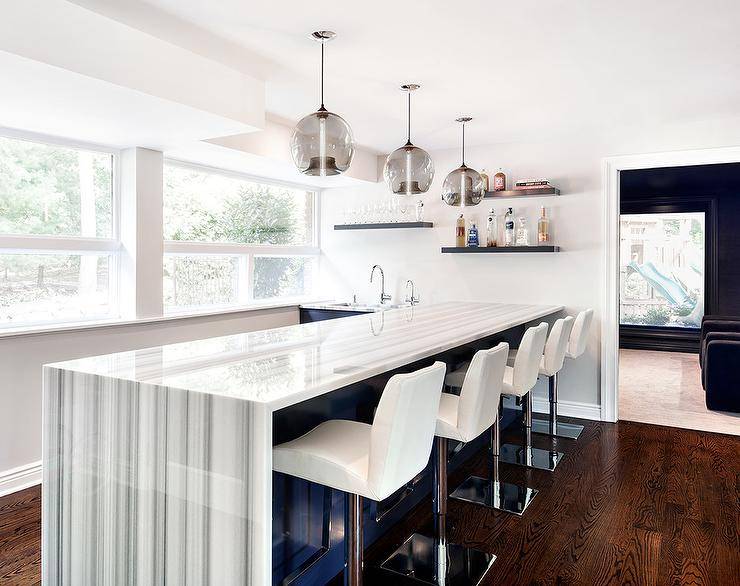
However, it’s important to balance this cost with your individual needs and budget. Consider how much value you place on the visual impact and durability of your countertops, and ensure that your choice aligns with your practical requirements and financial constraints. Ultimately, thoughtful consideration of these factors will help you make an informed decision that enhances both the beauty and functionality of your kitchen.
Related Articles
Turn your house into the home of your dreams. Our newsletter provides you with design ideas and decor trends. Subscribe now to start your journey to a stunning home! Click here to subscribe now.
You're reading Waterfall Countertops: A Blend of Elegance and Expense, originally posted on Decoist. If you enjoyed this post, be sure to follow Decoist on Twitter, Facebook and Pinterest.
Posted By : Holly Antoine
0 comments